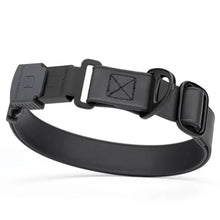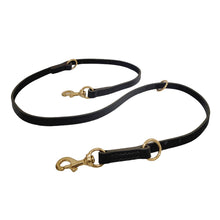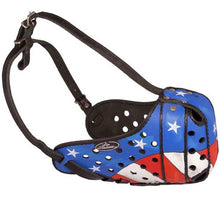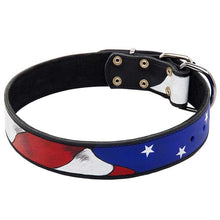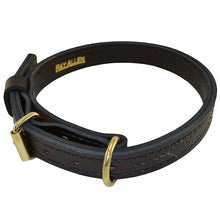Seasonal Care for German Shepherds: Adjusting Care Routines To Address The Changing Needs Of Your Dog With The Seasons

Sharing your life with a German shepherd takes a commitment. But they are worth every moment. Of course, they require exercise, training, and care year-round. But, just like people, their needs also change with the seasons.
Where you live and the age and health of your dog will determine how much you will have to adjust your routine seasonally. However, most owners will need to make some accommodations in how they care for their pets as the weather changes.
Some ways you can keep your German shepherd safe and healthy all year long include:
Nutrition
A German shepherd needs to eat a balanced diet. But their needs can change with the weather. You might notice your dog eats less during the summer months or is hungrier in the winter.

Depending upon where you live, their nutritional needs can vary, a lot. For example, if you enjoy mild winters, this might be the time of year when your dog is very active and easily burns extra calories.
But, for instance, if you live in a climate with brutally hot summers, your dog may not get as much exercise and can gain weight.
You can keep your pet a healthy weight by adjusting their diet to their seasonal activity level. If your dog is losing weight, up their intake a bit or make a gradual switch to a higher calorie food, such as a sport line.
But, if your dog starts gaining weight, you can lower their intake or gradually switch to a lower-calorie food. A lower-calorie diet enables them to eat their normal serving for fewer calories, so their nutritional requirements are met, and they don’t feel deprived.

Supplements
Seasonal supplements can help your dog live their best life. For instance, a supplement containing quercetin may be helpful during allergy season.
Conversely, your dog may suffer from stiff joints and dry skin in the winter and may benefit from omega-3 fatty acids and a joint supplement containing glucosamine and chondroitin. Or perhaps your older pet could benefit from an immune system boost in wintertime.
There are many supplements on the market depending on your pet’s needs. Talk to your vet about which ones may be most beneficial to your dog.

Hydration
Keeping your pet hydrated is always important. It provides many health benefits, including supporting their immune system and kidneys so they must have access to fresh, clean water at all times.
Dogs will drink more water in hot weather. But cold weather is very parching, especially if they are more active. And the cold and wind, heaters, and low humidity are also dehydrating.
Activity level, panting, health, temperature, and more can affect how much water they need. You can monitor them for dehydration by watching for the warning signs, which include panting, dry nose, loss of appetite, reduced energy level, lethargy, and thick saliva.
Along with always providing access to water, you may also want to consider adding water to their food, increasing moisture in their diet by adding wet food, and using a humidifier during the seasons that dry them out. When it’s freezing out, check to be sure their water isn’t frozen.

Temperature Changes
German shepherds have a thick undercoat, which can help them regulate their temperature. Most enjoy cool and even cold weather and are more intolerant to higher temperatures. It’s important to limit their time outside during certain months so they don’t get too hot or cold.
By switching up the time of day they exercise, you can protect them from extremes. For example, in the summer, you may need to take your dog for a walk in the early morning when it's cooler and limit their outdoor activities, so they don’t overheat.
Puppies, seniors, overweight, and dogs with health problems are more sensitive to heat and cold. So, it’s important to keep your eye on the weather forecast as well as the heat index and wind chill. You need to ensure that your dog can escape the heat or cold to avoid heat stroke, hypothermia, and frostbite.

Grooming
Grooming is important for their overall health. You can further protect them from weather changes by keeping their coat dry, clean, and brushed. The fur between their foot pads can collect ice, stickers, and chemicals but regular trimming can help reduce the risk. Protecting their paws from hot and cold surfaces and chemicals such as salts, ice melt, pesticides, and fertilizers is important to prevent injuries.
Keep an eye out for seasonal hazards
Each season is unique and with that, brings its hazards. Spring often is the time of year when pollen is high but in some states, pollen can be high in winter depending upon where you live so your dog may come into contact with an allergen at any time.
Toxic plants are also more in abundance during different seasons. Not only do plants grow outside, but at certain times of the year, poisonous plants such as mistletoe, poinsettias, and lilies are often used for decorating in and outside.

Spring is also the most likely time for a dog to encounter a snake or stinging insect. Snakes are most active during spring because they are hungry after hibernation and need to shed their skin and reproduce. But dogs may encounter snakes well into autumn.
For these reasons, educate yourself about the toxic plants and venomous animals and insects in your area. Keep an eye open for plants, snakes, and insects in your yard and while out on walks.
Pest protection and vaccines
As the seasons change, it is often the time routines change and more time is spent outdoors or on vacation. It’s a good idea to talk to your vet about which vaccines and flea, tick, and heartworm protection you may need before taking your dog on a new adventure.

Plan activities
It’s easy to entertain your German shepherd outdoors. A ball is all you need to provide them with hours of entertainment. Yet, as the seasons change, spending a lot of time outdoors isn’t always possible.
Since they are such active dogs, spending too much time inside can cause them to go stir-crazy. To help keep their sanity and yours, plan for indoor activities ahead of time by having a bag of new toys, chews, games, and training ideas at the ready so next time you’re stuck inside, you can make the most of it.
We hope you find these tips helpful. As always, please feel free to share with your friends.
You might also like: Cooling Tips for German Shepherds: How to Beat the Heat in Hot Weather






